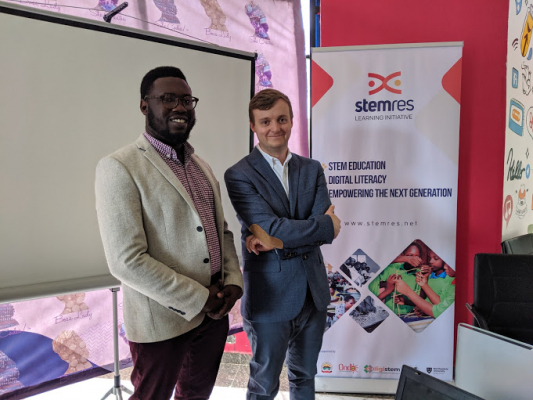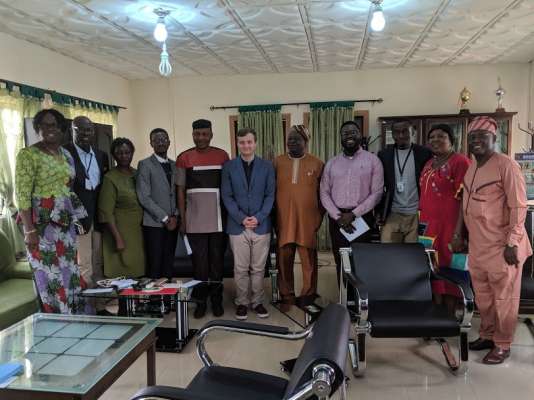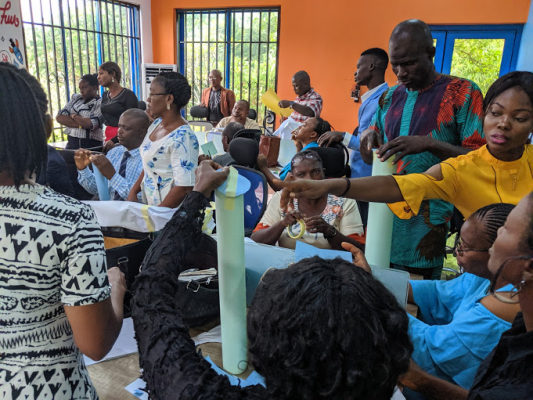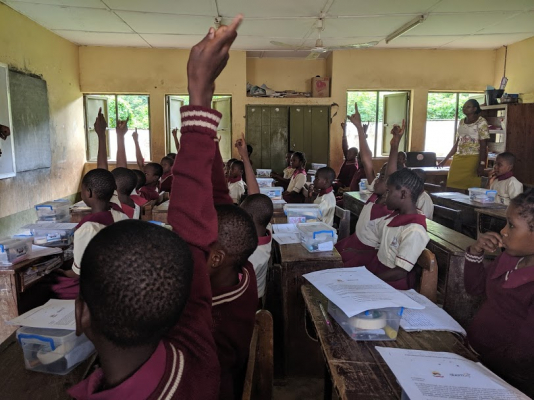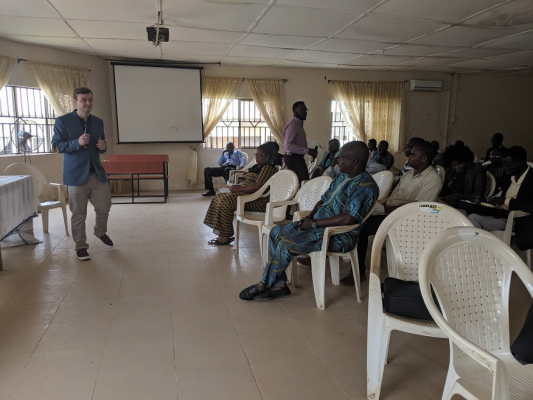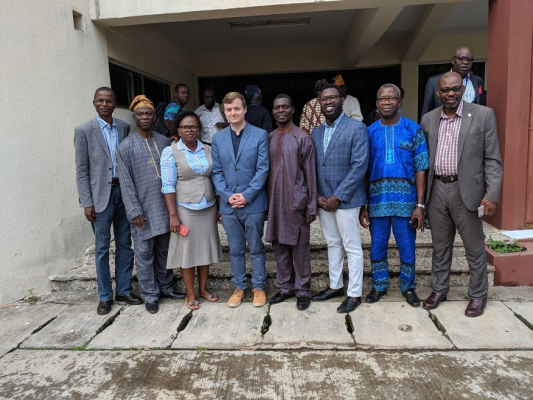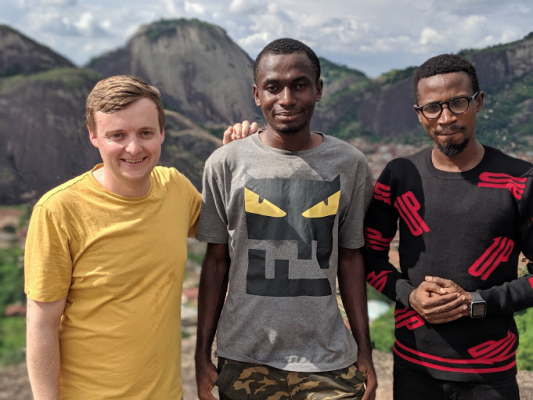Who are STEMRes?
STEMRes is a non-governmental organisation in Nigeria, working directly with state governments, schools, teachers and children to develop, deliver and influence STEM education programmes.
STEMRes’ programmes in Nigeria have built on research conducted in-country, but are also influenced by the Theory of Change and approaches developed by NUSTEM. Colleagues in Northumbria University and NUSTEM staff have been working with STEMRes to support this work.
You can find out more about the work of STEMRes on their website.
The Visit
In June 2019 NUSTEM’s Primary Outreach Specialist, Joe Shimwell, and Senior Lecturer in Computer Sciences and Information Technology at Northumbria University and Board Member of STEMRes, Opeyemi Dele-Ajayi, took a trip to Nigeria to meet with the STEMRes team, teachers, and education officials in local government, and explore ideas for future working relationships.
The aims of the trip were to:
- Explore the applicability of UK models of teacher training in the Nigerian context
- Work with STEMRes to define/refine their vision and delivery model
- Provide evidence of practice to state governments in Ondo and Ekiti for application of the NUSTEM model
In an action-packed week-long programme across two Nigerian states, Ondo and Ekiti, Joe, Opeyemi and the STEMRes team delivered training and open forums to primary and secondary teachers, visited primary schools and secondary schools in the states, held meetings with officials of the Ministries of Education, and visited the College of Education and FUTA University to begin talks and discussions.
During the trip Joe and Opeyemi met with senior officials from the Ministries of Education in Ondo and Ekiti states to explore the roles of STEMRes and NUSTEM in supporting STEM education in Nigeria, and following visits to schools and discussions with teachers, were asked to provide commentary on education in Nigeria from an outside perspective.
70 teachers attended the teacher training session. The teacher training session introduced active learning approaches to learning science and used a practical bridge building activity to illustrate the approach. The session also included a forum to discuss the applicability of this approach within the Nigerian context. While teachers were positive about the benefits of active learning approaches, a number of significant barriers were identified such as teacher knowledge and confidence with such approaches.
The delegation visited 2 primary and 2 secondary schools in Ondo state, and 1 primary, 1 secondary and two private schools in Ekiti to explore teaching practices and talk with teachers. The visits confirmed that the majority of schools did not have the resources, infrastructure, and training to deliver STEM education. Most importantly the visits showed that any resourcing of schools without support and training would have negligible benefit.
At the College of Education, the group started initial discussions about various models of science education, and group agreed to explore the college’s trainee teacher scheme in more depth.
At FUTA University, Opeyemi Dele-Ajayi gave a presention about the UK research funding landscape, Global Challenges Research Fund (GCRF) networking calls, and other opportunities for collaboration with Northumbria University. Joe Shimwell gave a presention describing how NUSTEM works with academic researchers in Northumbria University to create workshops with young people in the North East of England. These talks were attended by over 30 staff including Deans, HODs and other staff.
Joe and Opeyemi spent a lot of time having fruitful discussion with the STEMRes teams. They even managed to squeeze in a visit to the beautiful Idanre Hills.

